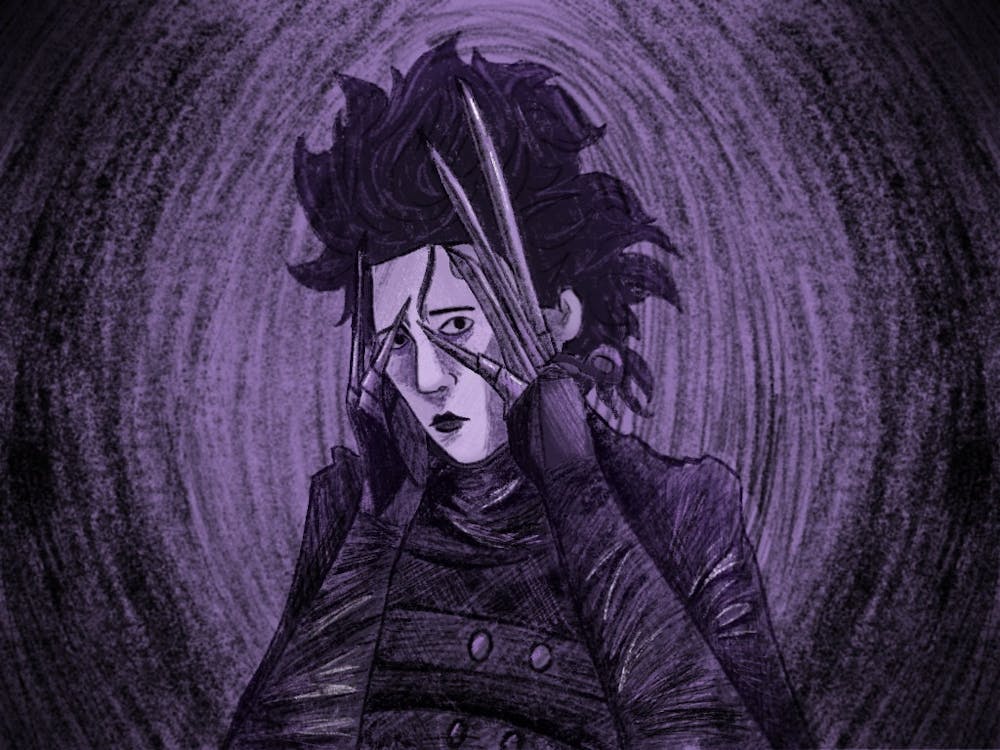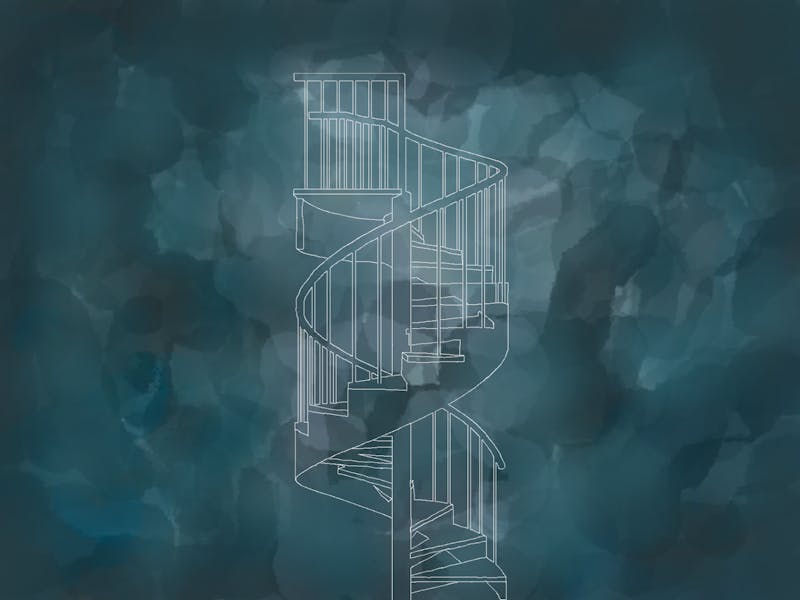Scarlet runs across your cheeks, burning every inch of your face as you hear laughter about what you’ve done. Maybe you opened up too much to someone and they mocked you behind your back, or maybe you wore the wrong costume to a Halloween party. Either way, shame paints your face with the blood of who you could’ve been.
A clinical psychologist named Heather B. McIntosh from McGill University explores throughout her book "Developmental Couple Therapy for Complex Trauma" what shame is and how it is connected to trauma. She writes, “Shame is an emotion that involves negative beliefs about yourself… and can lead to feelings of disconnection, detachment and distress in relationships." Shame can be an extremely damaging emotion to one's psyche, but darker media from Halloween completely unpacks this toxic emotion.
I've always loved Halloween and when I was younger, I didn't know how to describe why I enjoyed it and darker media in general so much. Children were often scared of Tim Burton’s films like “The Corpse Bride,” “Edward Scissorhands,” “Sweeney Todd,” “The Nightmare Before Christmas” or “Beetlejuice.” However, I found comfort in these movies. I’ve always enjoyed learning and analyzing the lyrics of songs and books, so it felt only natural to connect with creepier films. Looking into media that society deemed as wrong felt freeing; I could finally fully express myself.
Pop culture and more mainstream media are both able to question the status quo and have an in-depth analysis of society as well—I am not saying only this type of art can. There are plenty of shows that depict kindness as something to be admired and strived for, the difference is that Burton's media displays some negative traits of those who are deemed socially acceptable. Darker media is often characterized by leaving very little left uncritiqued and that's why I enjoy it so much. Everyone's character is open for analysis and interpretation. I didn’t find them as off-putting as others had because I just viewed it as another analysis. Honestly, these films felt like a rebellion because some people had problems with these darkly displayed themes. This gave me a way to express my young rebellious spirit; it made me happy.
Once you accept you don't fit in, it gives you a lot of room to explore who you are and what makes you happy. Whereas with mainstream media, it felt like there was always some expectation of having to fit in. Often, I felt like it was wrong for me to like these kinds of stories. Some days I even felt like a monster for enjoying creepy media, as society often paints people who consume it negatively. At worst, we're dangerous. These feelings of being an outsider led to the disconnection discussed by McIntosh in her book. Shame makes you think that you're inherently bad or at fault for the things that happen to you. When people tell you that you are intrinsically weird or odd for liking certain media, it furthers your obsession with the peculiar.
I bring up these works by Burton because his films express this feeling of being an outsider estranged from the majority. This darker media people consume on Halloween focuses on finding others similar to themselves or finding comfort in their solitude instead of self-hatred. Horror writers use this theme as well.
For example, Stephen King’s “Carrie” is about a girl with telekinetic powers and it follows the whole town bullying her. This story doesn't end as positively as "Edward Scissorhands" as the isolation causes her great harm, but had she been comfortable with who she was, things would've turned out much better for her and everyone else. Now, Carrie is portrayed as someone to be feared and not put on a pedestal like Burton’s Edward Scissorhands. This theme of shame and disconnection is still powerful through both pieces.
Speaking of "Edward Scissorhands," this movie is one of the best examples of isolation and ostracism made by Burton. Just as Edward cuts hair in two, this paragraph and the next will have spoilers in them so skip if you don't want them. This movie follows a man with scissors for hands experiencing years of isolation and is found by a woman who tries to assimilate him into town. People in town make it hard for him despite only being kind to those around him, and he often doesn’t even understand what he does wrong. After the neighborhood demonizes him, the town forms an angry mob to kill him which results in him killing in self-defense.
Edward feels shame about who he is in this town. He does not fit in because he is made different than other people. This adds to his detachment towards other characters and his lack of social cues prevents him from understanding when he is put into poor situations. Everyone has felt left out at some point in their life, being an observer of the world and not participating in it. The point of this movie is not to hate Edward for who he is, but it shows the best and worst aspects of socialization. Some kind people took him in and cared for him, while some people tried to use him or told lies about him to ruin his reputation. Throughout the movie, he gains the hobby of ice sculpting and it often results in snow falling from the ice. I find the most beautiful part of this movie is the last scene of the daughter telling her grandchildren the story of Edward and how he is responsible for the snow in town. He’s all alone in his home, perfectly ok with who he is, doing a hobby that brings joy to those who wouldn not ever know it was him.
Darker media embodies the true spirit of Halloween: it highlights stories that address shame and societal isolation by promoting self-acceptance and authenticity. People in strict homes have the opportunity to develop their style in ways they might’ve never had the chance to or dress as their accurate gender presentation for the first time.
If the environment around costumes had less shame, as this holiday's media often denotes, people could have a time of year when they feel like they can truly be themselves without fear of judgment or ridicule from others. Edward and other pieces of Halloween media should be taken as examples of being comfortable with yourself exactly as you are, despite the ridicule or pushback that you get from others in the community as long as you aren’t hurting yourself or others.
Halloween is the only holiday that revolves around outsiders. This holiday should be seen as an opportunity to bring together outsiders to feel a sense of community among people who may otherwise feel disconnected from society. All different kinds of people can band together and allow themselves to have a brief respite from the toxic shame that permeates our culture.
Make the blood of shame that once covered your face fruit punch in your hand as you don a new costume to a Halloween party. Find out more about who you are and bond with someone you would’ve never considered otherwise. Use the blood of who you could have been to create a new you, embrace authenticity and do what you love.



